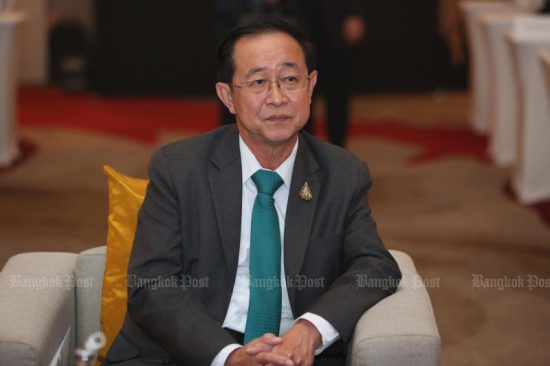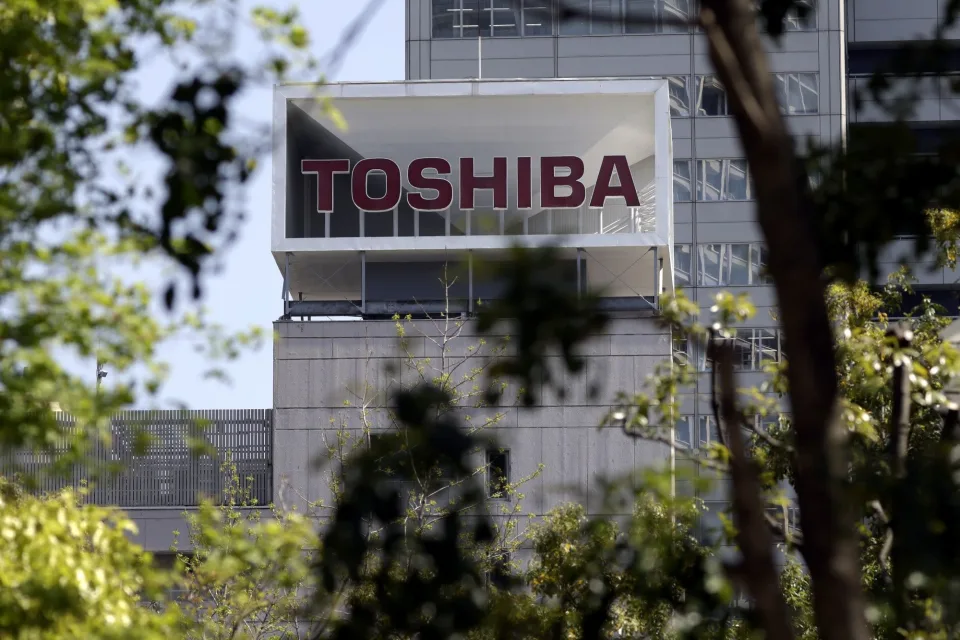‘Further strict’ baht curbs coming – finance minister
3 min read
Finance Minister Arkhom Termpittayapaisithบรรยากาศงาน is pictured at Bangkok Post International Forum Asia 2020 in Bangkok on Nov 23. (Bangkok Post photo)
Recent measures from the Bank of Thailand that aim to restrain the surging baht will likely be followed by “further strict” steps, but policy makers are unlikely to impose outright capital controls, Finance Minister Arkhom Termpittayapaisith said.
“I think that’s only the first step,” Mr Arkhom told Bloomberg Television, referring to the Bank of Thailand’s Nov 20 move to ease rules on capital outflows. “I’m sure the central bank will do more measures on that.”
Currency strength has re-emerged as a key issue for the government after the baht reached a 10-month high against the US dollar in November, raising concerns about the impact on exports. Thailand’s economy is expected to contract the most in more than two decades this year with tourism in limbo amid the pandemic.
Urged by exporters and policy makers to stem the baht rally, the central bank announced plans to relax capital outflow rules and more closely scrutinise investment into bonds. So far the measures have failed to cool the currency. The baht was 0.1% lower at 30.285 to a dollar by 8.50am, paring gains this quarter to 4.6%.
The baht is still up more than 8% from the year’s low in April, with foreign investors ploughing money into Thai stocks and bonds as the weak dollar boosts appetite for riskier emerging-market assets. Net foreign fund flows into Thai stocks and government bonds stood at $2.2 billion in November, according to data compiled by Bloomberg.
The economy improved in the third quarter after the government implemented a series of stimulus measures and eased restrictions on movement as it brought the country’s Covid-19 outbreak largely under control.
Stable Rate
Mr Arkhom said the government aimed to keep the baht exchange rate stable so exporters can manage their revenues, but wouldn’t specify a preferred level for the currency. He also ruled out stringent limits on the amount of funds that can enter the country.
“We wouldn’t see that,” he said of capital controls. Asked if there was any conceivable situation in which Thailand would pursue such a policy, he said, “we haven’t discussed that yet.”
Policy makers last imposed limits on funds entering the country in December 2006 to slow baht gains and protect exporters, a measure that led to a divergence between the onshore traded value of the currency and the offshore value. Equity investors were soon exempted from the restrictions after the benchmark stock index slumped 15%, and the curbs were fully lifted in March 2008.
Thailand may struggle to temper baht gains as foreign inflows into the nation’s stocks will continue even if the central bank curbs supply of short-term bonds, according to Jitipol Puksamatanan, head of market strategy at SCB Securities in Bangkok.
Cheap Stocks
“What the central bank may do is to reduce short-term bond supply. But that may have limited impact on baht as we see the main inflows going to stock market now, Mr Jitipol said. “Thai stocks are cheap and attractive to foreign investors, and they stand to make double gains from both stocks and baht.”
Thailand’s foreign-exchange reserves climbed to a record $255.25 billion in the week ended Sept 18 as the central bank bought dollars to limit appreciation in the currency. The reserves have hovered above $250 billion level this month and stood at $253.43 billion as of Nov 20, according to Bank of Thailand data.






